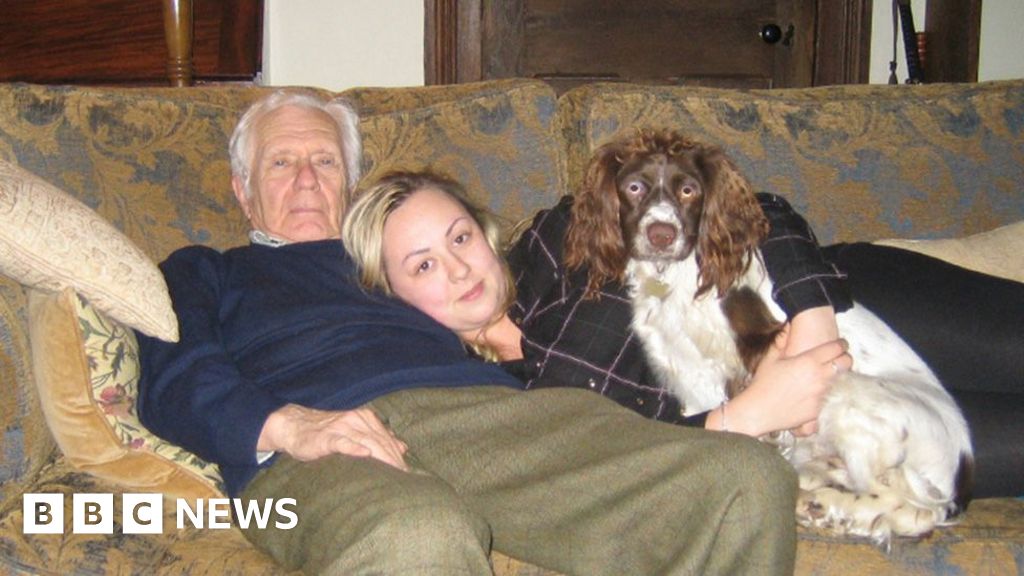
 Getty Images
Getty Images
People looking for caravan stays in Wales have been conned out of their money by online scammers
Scammers are using Facebook to target people looking for caravan holidays and catfish them out of money.
Ann Crofts, 53, paid a £75 deposit for a caravan holiday at New Quay, Ceredigion, only to learn her details were used to set up a shopping account.
And a 17-year-old who paid a £240 deposit to someone advertising a caravan holiday turned up at the site to be told the caravan she booked did not exist.
A spokesperson from Meta, which owns Facebook, said it did not allow "fraudulent activity" and was "investigating the accounts brought to our attention".
A Which? consumer expert said these types of scams were "incredibly prevalent", and said Facebook should do more to protect people.
Ms Crofts, from Pontypridd, Rhondda Cynon Taf, said she was targeted after she posted a message to a Facebook community page looking for stays in west Wales.
A person claimed they owned a caravan on a site owned by holiday firm Haven, and Ms Crofts started discussing hiring it with them over direct message.
But once she learned she was being conned the scammer blocked her and she made a report to Facebook.
"I live in China and come home just a few months a year. I just wanted to spend time with my family," she said.
"There was something niggling in the back of my mind, I just knew something was off."

 Ann Crofts
Ann Crofts
Ann Crofts says her details were used by a scammer to set up a Next shopping account
After a "gut feeling" that the exchange could be a scam, Ms Crofts checked Haven's website directly and saw the person's profile did not match up with the registered owner of the caravan.
"She sent me certification of ownership but her name was blurred out of it," Ms Crofts said.
Ms Crofts said her name, address and date of birth was used by the scammer to set up a store card with the retailer Next.
"Next flagged it to me as fraudulent behaviour, so I reached out to her again and said I believed her to be fraudulent and she blocked me," she said.
After the seller had blocked her, Ms Crofts said she struggled to report the account on Facebook.
"Facebook didn't respond" she said. "Social media should get involved but at the same time it was me, [I'd] done it and fell for it."

 Getty Images
Getty Images
Holiday scams see an uptick during the summer break, according to a consumer expert
Another scam victim, Rebecca, 17, who did not want to be identified by her real name, said she paid a £240 deposit to someone on Facebook who was advertising a caravan holiday at Trecco Bay Holiday Park in Porthcawl.
But, when she turned up at the site she was told the caravan she booked did not exist.
Rebecca, from Merthyr Tydfil, said: "On the day we were going down to the caravan, we were texting them, but we got no response.
"Once we got to the caravan park, that was when we found out that it wasn’t real.
"When I phoned the police, they took my details and all the information that I had, but were told there wasn’t much they could have done, as the person who scammed us could be anywhere in the world.
"It hasn’t been the easiest couple of years for us as a family, so to lose this money, it is a lot for us. The summer is here, and we needed that money."

 Lisa Webb
Lisa Webb
Lisa Webb says Facebook's owners should do more to clamp down on scamming accounts
Which? consumer expert Lisa Webb said scams over Facebook were "incredibly prevalent".
"Holiday scams are generally seasonal, so as we are currently in the summer holidays you will definitely see an uptick in the number of scams associated with going on holiday," she said.
"Whether that be home rentals, or visiting places, or car rentals - those sort of things that you might be looking for on the cheap during the summer holidays.
"That's not to say everything out there is a scam, but it is worth remembering that during the holiday time you are much more likely to be experiencing these scams."
Ms Webb said Facebook's owner Meta should be ensuring it is tackling suspicious accounts, as its current "whack-a-mole approach is not working".
A spokesperson for Trecco Bay Holiday Park said: "We’re concerned by these scam adverts and sympathise with anybody who has been affected.
"These adverts relate to private bookings, rather than our booking platforms, and we would always urge anybody looking to stay at the park to securely book directly through our website or via one of our trusted partners."
Haven has been asked to comment.
A spokesperson from Meta said it did not "allow fraudulent activity on our platforms and are investigating the accounts brought to our attention".
It added: "We are continually investing in protections against fraud for people who use our platforms and work closely with law enforcement to support investigations.
"We encourage our community to report activity like this to us and the police, so we can take action."
 7 months ago
564
7 months ago
564



